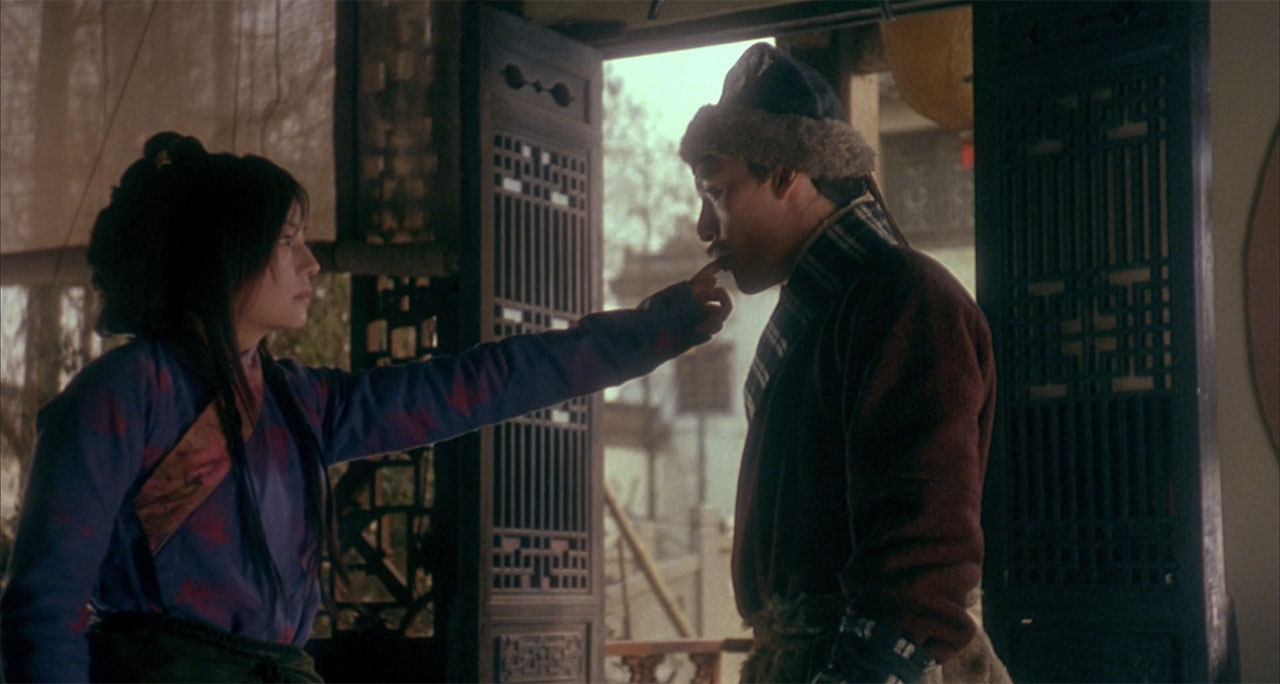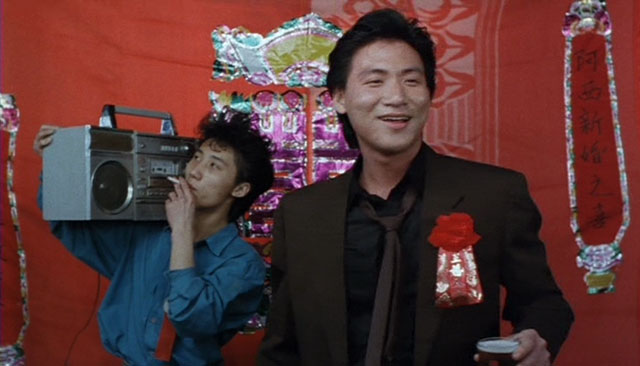One-Tenth of a Millimeter Apart (2021, Wong Kar-wai)
Making a Wong film out of outtakes fom other Wong films. It’s a cute idea – pushes its egg-metaphor too much, but gives us some scenes that I honestly can’t recall if/how they existed in the source features since I don’t watch his movies often enough.


–
Wandering (2021, Tsai Ming-liang)
A woman walks through Tsai’s installation, watching a scene from each of the eight Walker films, alone except when the director appears at the end, transfixed by his own footage of Lee in a bath. A nice introduction and/or culmination to the slow monk project, with some new-to-me scenes, including a non-Lee monk in a white void.


–
Redemption (2013, Miguel Gomes)
Four sections of archive footage illustrating narrated letters from the past. The end credits is where things get exciting, revealing the narrators and the letter writers (Maren Ade reading Angela Merkel!) then immediately revealing that all the letters were made-up. Per Vadim Rizov in Filmmaker, the letters are by “some of contemporary Europe’s least-liked leaders,” and the end result “a sympathetic but also fundamentally facile experiment.”


–
Dead Flash (2021, Bertrand Mandico)
A scrapbook for Mandico completists – rushes and backgrounds with a mood-music mixtape. Extended shots of a multiple-stabbed dude, a double-dicked light-up crystal statue, the usual. Then the second half is ape-people as model and photographer (both played by Elina Löwensohn) in split screen with dialogue (“I want you to magnify this dirty memory”).
Fellow Mandico completist Gianni helps spot the source films on lboxd:
Outtakes from previous shorts (Extazus, Niemand, A Rebours and Huyswomans – Huyswomans is reproposed integrally) plus a brand-new short film about two anthropomorphic monkeys … the outtakes of Extazus have been released separately in a dvd box-set – Ultra Pulpe et autre chairs – with the title of A Black Sunset Upon a Violet Desert.



–
bonus shorts from Criterion Channel:
Dream City (1983, Ulysses Jenkins)
Music and theater performances and other assorted stuff, mixed together with muddy sound recording and early video chroma effects.
–
Black Journal: Alice Coltrane (1970, Stan Lathan)
Short, effective doc portrait on Alice at home and playing music. Beyond a few photographs previously seen, this is now everything I know about Alice.
–
And we got access to that animation streaming site that I already forgot the name of, and watched two of this year’s oscar-nominated shorts that I already forgot the name of.





























